#dahran
Photo
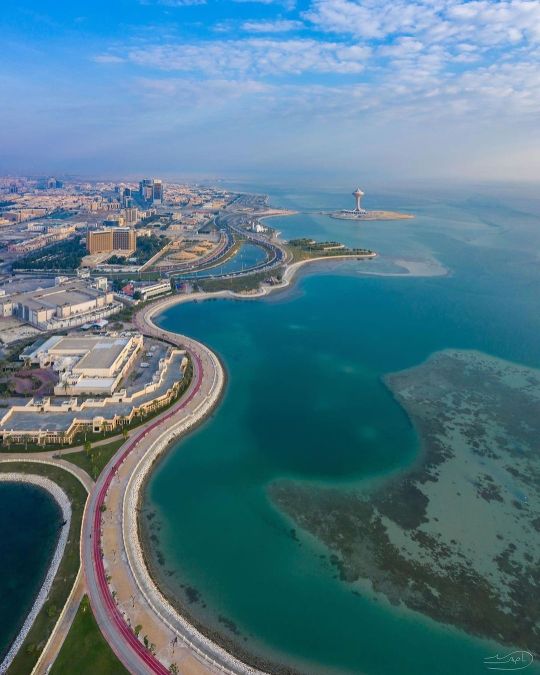
The beautiful city of Al Khobar, Saudi Arabia. . . . Great photo by @nasser.nsd . . . #saudiarabia #alkobar #dammam #dahran #saudiarabiaphotographer #saudi #sauditoday #saudistyle #saudi_arabia #travelphotography #traveling #travellife #السعوديه #الخبر #الظهران #الدمام (at Al-Khobar Corniche كورنيش الخبر) https://www.instagram.com/p/CoFLkACjrzP/?igshid=NGJjMDIxMWI=
#saudiarabia#alkobar#dammam#dahran#saudiarabiaphotographer#saudi#sauditoday#saudistyle#saudi_arabia#travelphotography#traveling#travellife#السعوديه#الخبر#الظهران#الدمام
1 note
·
View note
Text
Random Real Thoroughbred: DAHRAN
DAHRAN is a chesnut mare born in Venezuela in 1978. By DAPPER DAN out of DAMA GRIS.
Link to their pedigreequery page: https://www.pedigreequery.com/dahran
0 notes
Text
Good morning TUMBLR - March 7th - 2024
''Mr. Plant has owed me a shoe since July 5, 1971."
Ch. VIII - 1985- 1989 - Bahrain - Part 1

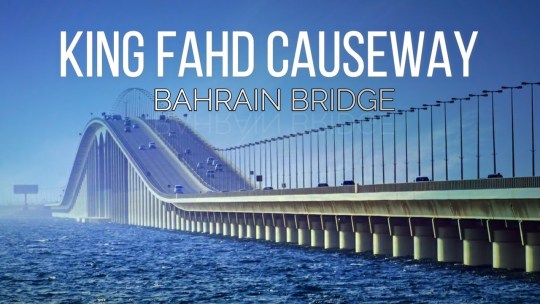
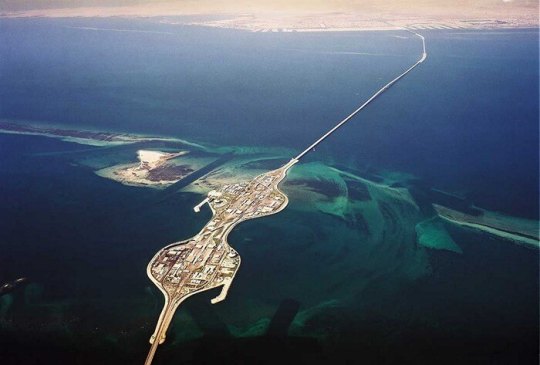
The 25 km King Fahd causeway that links Saudi Arabia to Bahrain.
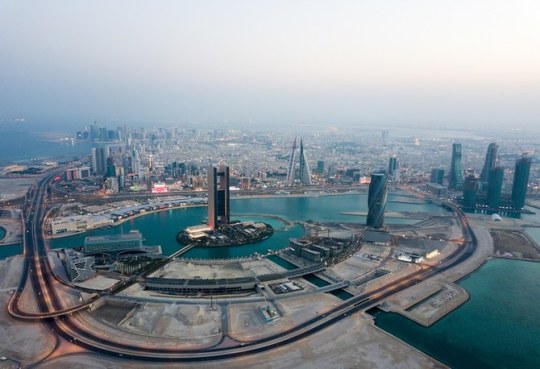
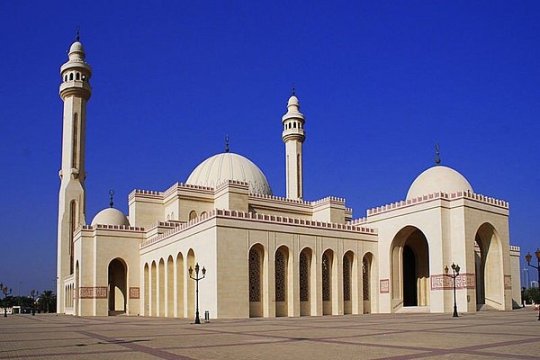

Manama, the modern capital of Bahrain.
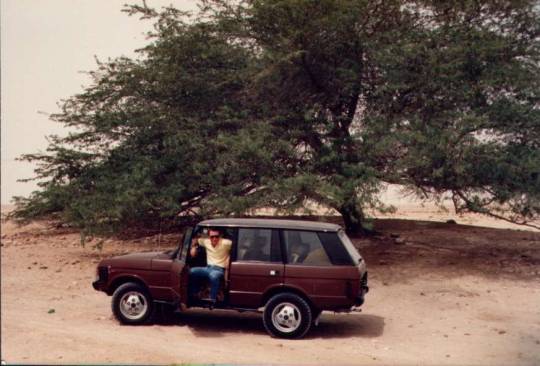
Bahrain desert - the Tree of Life
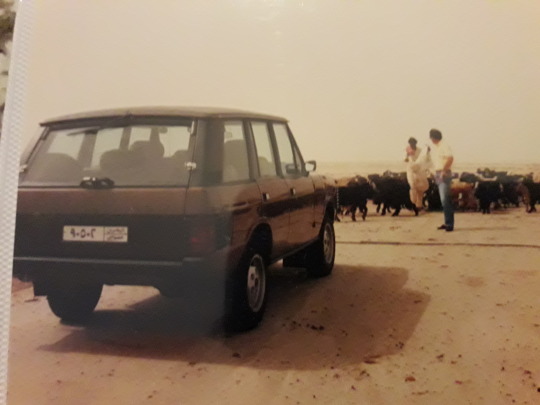
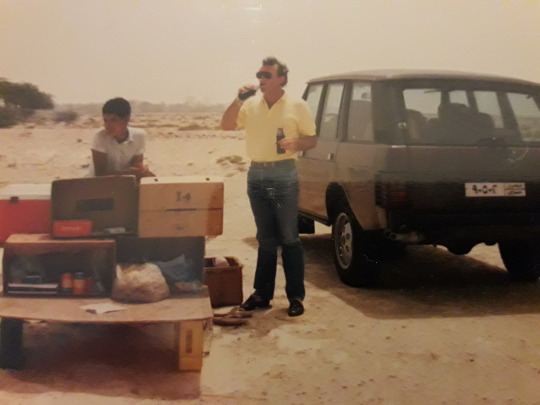
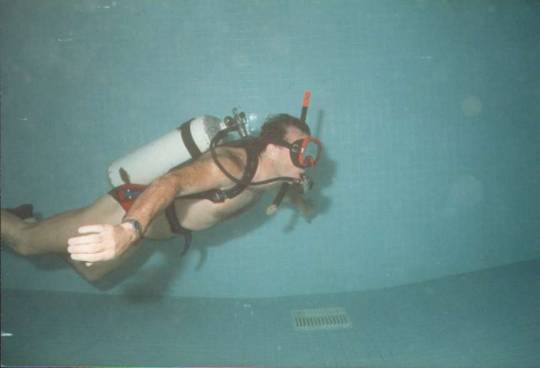
Bahrain life
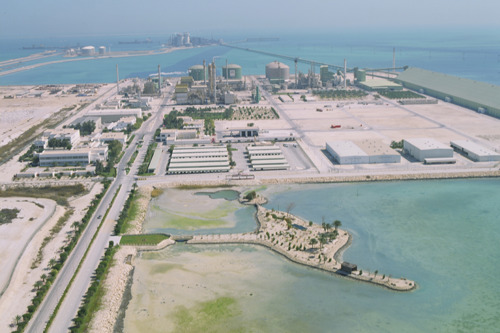
GPIC - Gulf Petrochemical Complex - Sitra Island, Bahrain
The winter between December 1984 and January 1985 was particularly harsh in Italy, characterized by increasingly lower temperatures. Between 13 and 17 January 1985, a depression centered on the Corsican Sea caused what is still remembered in Milan today as the snowfall of the century or the snowfall of '85, constituting the heaviest snowfall recorded in Milan in the 20th century. The snowfall caused serious damage. After four days of real storm, January 17th 1985 the Sports Hall collapsed in Milan due to the excessive weight of the snow that had accumulated on the roof.
In this certainly not festive atmosphere, I received a call from an engineering company in Milan, INTECH, an already a supplier of services to SNAMPROGETTI, with whom I soon agreed to leave for Bahrain.
From the SNAMPROGETTI office in San Donato, the Head of HR office Mr. Cincotta reassured me:
''It's a temporary destination, just a few months, waiting that construction of new Agadir International Airport will start … don't worry…''
I stayed there for 4 years…….
Mind you, not that I minded: Bahrain was a liveable place (drinkable, in the language of shipbuilders) especially because it also allowed families to reach the employees involved in the project.
I then left at the beginning of March 1984, with a flight via Kuwait.
I arrived at Manama airport and believe it or not there was someone waiting for me! A local guy holding a board with my name written on it almost correctly: Brino Sirino….
Bahrain is a small Emirate in the Persian Gulf (Kaleejj el Arabi) made up of a main island and a myriad of uninhabited islets. It is the ''poorest'' Gulf state, relative to its surrounding neighbors. Above all, Saudi Arabia provides the Emirate with considerable economic aid as the ruling house of Bahrain, like the Al Saud, is of the Sunni faith, in spite to a majority Shiite population
The Saudis would never allow a Shiite regime to be established 25 km from the Saudi coast with the approval of the ''Great Enemy'' Iran. And then Bahrain was a sort of ''playground'' for Saudis looking for entertainment just outside their front door. This therefore explains the reason for the economic support to Bahrain by the Saudis. For instance, one of the largest oil well in Saudi waters has always been exploited for free by the Bahraini oil industry. The construction of the 23 km long bridge that connects Saudi Arabia to the island of Bahrain was financed by the Saudis. The free sale of alcohol in Manama by shops managed by a company belonging to the ruling Bahraini family is another concession aimed at helping the Emir Al Khalifa's coffers. In 1986, shortly before the opening of the Dahran – Manama bridge to traffic, King Fahad proposed to the Emir Sheik Eissa the prohibition of alcohol sale, promising to compensate the Emir for the lost earnings: an offer returned to the sender.
On top of all this, about 50% of the Southern territory of the island of Bahrain is off limits, due to the largest naval base leased to the US in the Gulf. However, Manama has since then been a modern city, full of skyscrapers, luxury hotels and shopping centres.
AWALI
I was housed in Awali, a village of wooden houses built by the Americans of Caltex in 1939, when the first refinery in Bahrain (and the entire Persian Gulf) was built. Someone later told me that around 1942 some Italian planes departing from a base in Egypt tried to bomb the refinery, which produced fuel for the English army. Not having enough fuel to guarantee the return, the planes dropped their bombs into the sea just before the island of Bahrain, and aborted the mission.
The village of Awali is located almost in the center of the main island of Bahrain, and its wooden houses are reminiscent of those from the Lassie TV series in every way, including anti-mosquito doors. The houses are 2 and 4 bedrooms, with a large living-dining room, kitchen and two bathrooms. I was assigned to a small 4 bedroom house, but when I got there I was the only occupant. The village also had a club with a partially covered swimming pool (to prevent the summer sun from making the water too hot) and tennis courts, to which we had free access.
RONCI ATHOS
A few days after my arrival, around 3.00 AM, I heard some noises: the sound of a car stopping, doors slamming, and than someone throwing something (I than saw that it was suitcases…) inside the house. , on the wooden floor. Then the door of my room suddenly open, and someone said:
Are you asleep?
Before you arrived I was asleep…….
However...... - says the guy - I'm not going to stay here…….tomorrow I'll talk to the HR and then I'll see .....
Okay…. I say…. do as you like but let me sleep now….
For the record, Mr. Ronci Athos – Umbrian from Narni – was still there in 1993, in the place that 8 years earlier he had said he would leave as soon as possible….
THE PROJECT
Our client was called GPIC - Gulf Petrochemical Industries Company - a mixed Bahraini, Saudi and Kuwaiti capital company - and was part of the economic aid package from the rich Gulf countries to the ''poor'' relative of Bahrain.
Later, at the time of the commissioning and start up of the plants - we would have transformed the acronym into Gruppo Pensionati Italiani Comerint, given the average age of the people that the then company 'ENI had sent to proceed with the commissioning of the plants.
The project was in its final phase, and was directed by none other than the P.I. Manoli Benito Italo. Bahrain would be his last construction site personally managing, before becoming Director of the CSO Service of SNAMPROGETTI. The works were even ahead of schedule, so SNAMPROGETTI enjoyed a lot of credit with the Client. Upon delivery of the plant, the Client gifted an extra bonus of 4 million dollars to SNAMPROGETTI for its performance.
The credit was than canceled in 1990, during the first Gulf War. GPIC invited SNAMPROGETTI, BECHTEL and UHUDE to provide an initial feasibility study for a urea plant to be built alongside the existing ammonia and methanol plants. BECHTEL replied that she was not interested, SNAMPROGETTI sent a fax requesting an advance of 11,000 USD for the preliminary study. The Germans from HUDE, sensing the deal, in the midst of the Gulf War, sent a representative to Bahrain to discuss the possibility of building the urea plant. In 1992 the belated SANMPROGETTI envoy to Manama was detained at the entrance gate of the plant for a couple of hours, only to be informed that GPIC had officially commissioned UHUDE with the preliminary study.
COMMISSIONING & START UP
The long phase of pre-commissioning, commissioning and start-up of the plants soon began. Which were built on a so-called reclaimed land (an artificial island) created by dredging the shallow seabed, characteristic of the Bahraini island. The artificial island - equipped for safety reasons with an outer gate and an inner gate - was connected to the mainland by a causeaway approximately 3 kilometers long, and a second causeaway joined the island to the loading arms of the products, 10 kilometers further into the sea. This is to allow ships to carry out loading operations in complete safety, without the risk of running aground in the shallow seabed. There were many wrecks of ships stranded along the channel dug by the open sea up to the port of Manama - this much to the happiness of the divers, given that the wrecks had been transformed into sanctuaries of Persian Gulf tropical fish.
However, I must say a word to describe the characters who are part of the commissioning – start up. These particular people, who believe they are a sort of ''NASA scientists'' intent on launching the SPACE SHUTTLE into space. As soon as they arrived at site their aim was: ''Okay, get rid of Construction people, we're here now''.
The fact is that, apart from 3 or 4 of them who really knew what they were doing and were experts in the difficult process of putting the plants into operation (very dangerous indeed) all the others followed suit: ''they claimed to know'' and the less they knew, the more they pretended they were knewing. I met someone who, as soon as they heard someone approaching, started to talk about chemical formulas, operating pressures, and so on, just to put on airs.
In any case, within 3 months the start up team had managed to get the two plants up and running, even if the (rhetorical) question that was circulating was - Did you make the methanol?'' ''no…I didn't…So who did it?? No one knows.... ''
Tawfeeq Mohammed Rasul Almansoor - GPIC President
The President of GPIC, however, did not seem entirely satisfied, and he demonstrated it with a series of actions that were surprising to say the least.
One day Mr. Tawfiq arrived at high speed at the outer gate driving his metallic blue Rolls Royce. The presence of smat guy on the guard post prevented him from ending up against the bars at the outer check point.
Mr Tawfiq continued on the causeway at full speed and the inner gate guard, warned by radio by his colleague at the outer gate, promptly raised the bars. The President's Rolls entered the area of the Administrative offices, where he finally stopped. Tawfiq got out of the car in a rage, and ordered the Security Chief who met him to organize a meeting within 15 minutes. Participants in addition to him were the Security Chef, the Director of COMERINT and the Security Advisor.
We mortals later learned that the Security Chef – an British guy, former officer in Hes Majesty's army, had been fired on the spot – Reason given by Mr. Tawifiq:
''Two gates were opened for me and I was able to drive my car into the plant – and this was because at the sight of my Rolls Royce the guards thought I was driving the car. What if he was a terrorist? What if I suddenly went crazy and wanted to attack the plant? What if I had been kidnapped by terrorists who were hiding in the car filled with explosives??'' (I remember that the Rolls Royce was equipped with tinted mirror windows which did not allow anyone to see who was driving the car.)
A few days later, a second episode, again with Mr. Tawifiq as absolute protagonist. He had gone between the Main Control Room and Plant Laboratory, in a fairly hidden corner of the plant, and had broken the glass of one of the fire alarms that send a signal to the Fire Department control room. He than set off the stopwatch on his Rolex Platinum Diamond Pearlmaster to see how long it would take for the firefighters to arrive. After 11 interminable minutes - I would like to point out that the Fire Station was about 700 meters from the place where Mr. Tawfiq was stationed - the firefighters arrived to find that it was a false alarm. Again an urgent meeting was called, where this time the HSE manager lost his job. The reason for such a delay – which according to Tawfiq could have led to a disaster in the event of a real fire – was that on the synoptic panel of the fire brigade control room it was not possible to identify precisely where the alarm had went off.
Just a week after the episode of the false fire, the start-up of the plants had been successfuly done. The plant was even proding more ammonia and methanol than expected, around 1,200 tons per day per product, instead of the 1,000 tons expected. But many of the ''COMERINT Pensioners'' who had participated in the commissioning were still circulating in the plant. As they say in Southern Italy, ''they were mugging''.
Obviously COMERINT was looking for all the plausible excuses to keep them in service, given the daily rates with which they were invoiced to the Customer. (an average of $1,200/day per person). The situation between COMERINT and GPIC had become very tense, with daily requests from the latter to demobilize the technicians.
One day Tawfiq lost patience, and went to the Main Control Room - still dressed in the traditional white disdasha, ghutra on his head, he surprised a swarm of Italians having coffee, talking about football, playing on the computer. Tawfiq, who had been taken like an ordinary local, turned to the bystanders waving his arms in the Arab manner and said:
''What is this? Coffee shop''?
The shift manager, at that moment sitting on the desk with a cup of coffee in his hand and his legs dangling, stood up and in a benevolent manner, took Tawfiq by the arm (a very serious mistake as per Arab habits) pointed to a door at the end of the corridor and told him :
Shouff (look) coffee shop for Arab is there, at the end of corridor – accompanying it all with a laugh.
Tawifiq, according to bystanders, didn't show any sign of upset - he left the Control Room, called the Italian Director on the phone. Mr Fiorentino, COMERINT top manager. Mr Tawfiq ordered that all those present at the unfortunate episode were boarded on the first plane to Italy. The offices in the North wing of the Control Room were closed until further notice.
But where the President of GPIC gave his best was at the final meeting with Construction Director Benito Italo Manoli and the entire SAMPROGETTI staff present. During the meeting, numbers of questions were raised which mainly concerned the safety of the systems. At a certain point Mr. Tawfiq turned directly to the Italian Doctor Mr. Busonero asking :
Doctor, in case of explosion of one or more tanks of ammonia or methanol, either due to a terrorist attack, or due to an accident, what could be the consequences?
Dead silence in the meeting room… gazes of all those present frantically crossing each other… Mr. Manoli trying to communicate via brain waves with Doct. Busonero, while coughs and noises of chairs moving rang out in the room…. ..and finally the Doctor, red in the face and with drops of sweat running down his forehead (despite the air conditioning being set to 19 degrees C – Tawfiq's favorite temperature) Doct. Busonero replied:
- Well…Mr. Tawifiq…with a prevailing wind from the South-East to the North-West, the inhabitants of Manama would have from 7 to 10 minutes to recommend each one's soul to God…''
It was freezing in the meeting room, no one said a word, everyone was waiting for the President's counter-reply. Tawfiq stood up and nodded to Mr. Manoli who followed him into President's private office.
The next day there was no trace of Doct. Busonero. We learned that he had been put on a plane to Rome before midnight, the deadline that Tawfiq had indicated to Mr. Manoli. Contrary, Doct. Busonero would have been arrested for telling the truth.
5 notes
·
View notes
Text
WIP Title Tag
I think @hyba tagged me in that (I could be entirely wrong though 😅). That looks like a funny game… though I’ll probably add some titles which are so dead…
Rules: Post the names of all the files in your WIP folder, regardless of how non-descriptive or ridiculous. Let people send you an ask with the title that most intrigues them and then post a little snippet of it or tell them something about it! And then tag as many people as you have WIPs.
The Last War (in two Parts: Rising Queens, and The Black Sorcerer's Coven)
The Dragons of Jamaedo
The Coriant Trilogy
The Pirates of Hokushō
The Shadow and the Forest
A Train in Roue-Champêtre
The Fall of Baschenka
The Union of Dahran Cities
The Living Library
Here walked Marka
This is not a Fairytale
The Wanderer (actually, hiker is the correct translation for Randonneur, but it sounds awful to me)
Titles 1 to 10 are all set in the universe of the Tales of Rheio. Also, I will never fully write The Living Library. The other titles still have hope to exist.
Tagging : @writeblrfantasy @kittensartswriting @chayscribbles @pheita @blind-the-winds @crowandmoonwriting @elizaellwrites @kaatiba @apocellipse @klywrites @thomrainierskies @someonesomewherelovesyou579 (as always feel free to ignore, I've been very bad myself at answering tag games for over a year, so no judgment from me)
8 notes
·
View notes
Text

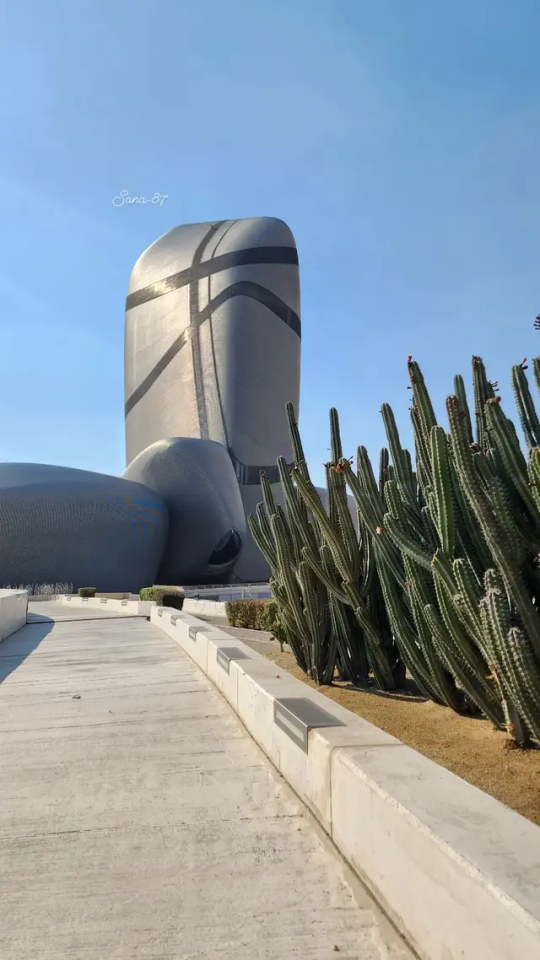

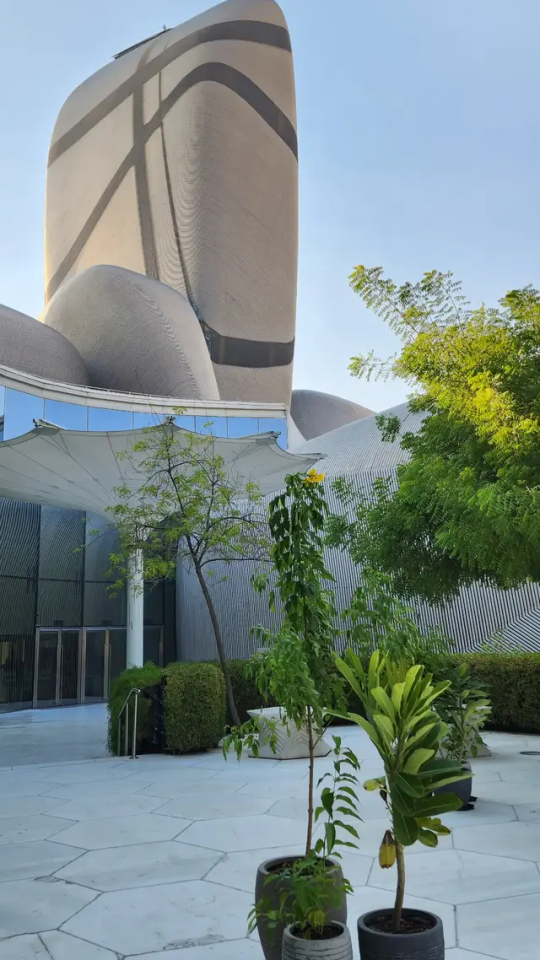
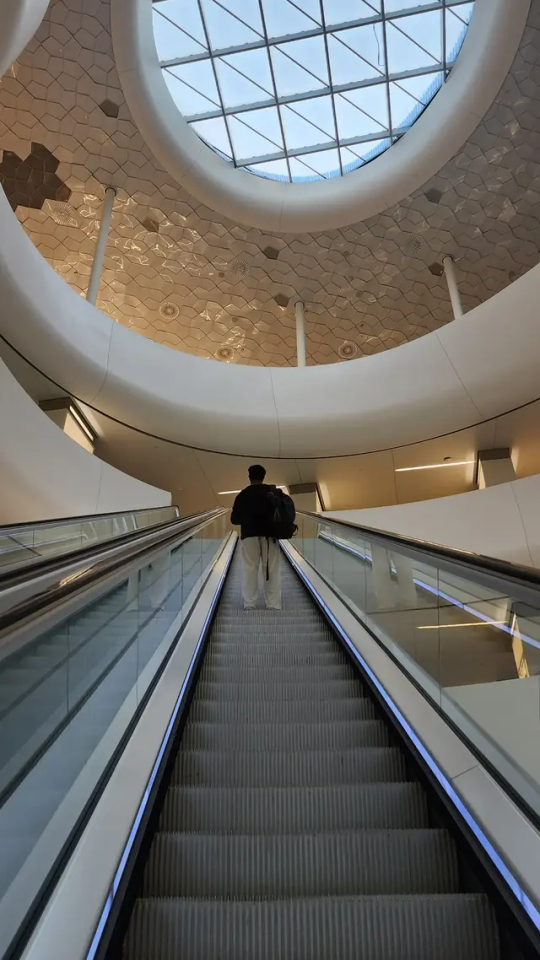
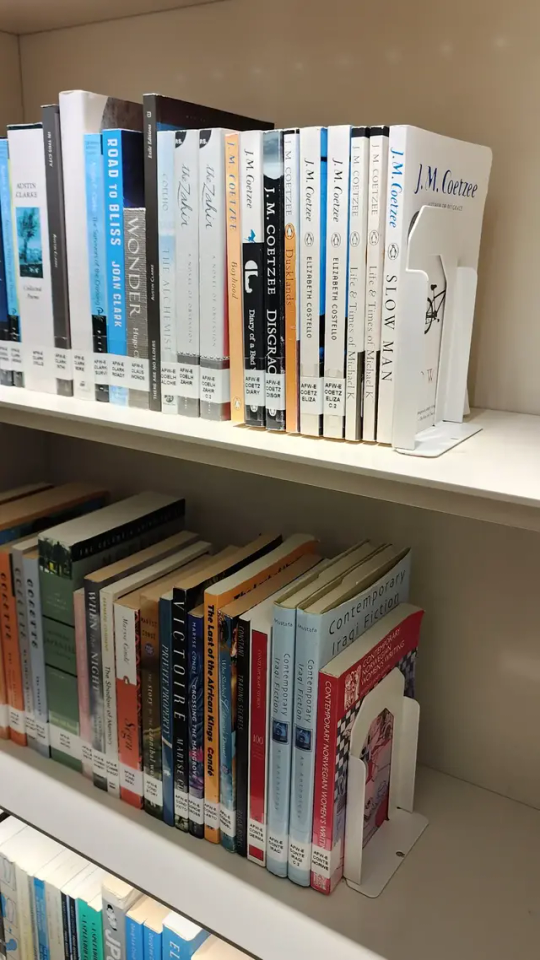

Ethra-Dahran
1 note
·
View note
Text
The Saudi tourism and marine industry is constantly working towards promoting luxury chartering opportunities to enable marine enthusiasts to enjoy cruising along the archipelago’s perfect beaches, and turquoise waters & enjoying the splendors of the Red Sea with a luxury charter along the coastline of Saudi Arabia. The long stretch of desert coastline offers a stunning contrast between the sandy beaches and the sapphire sea. Filled with sun-soaked ancient settlements, modern cities like Jeddah and Dammam, Murjan Islands, Khobar, Dahran, Tarout Bay, and everything in between, explore the Arabian Peninsula’s best via Luxury Yachts.

As part of the Saudi Vision 2030 program, the Red Sea Development Company is set to undertake various mega-development projects including the Amaala Yacht Club. Set within the Triple Bay Marina of the Prince Mohammad bin Salman Nature Reserve, the 7,900 sq m facility is designed by leading architecture company HKS. It is one of the kingdom’s biggest projects and part of the country’s ambition to become a global tourism leader and international hub for luxury yachting.
Boats For Sale In Jeddah offers premium facilities for motor and sailing yachts up to 120 m in length. Located on the north Jeddah corniche, the Jeddah Yacht Club is the first green marina in the Red Sea accredited by the top international associations for the best security, safety, and environmental practices under the supervision of a skilled harbormaster. The world-class marina also hosts one of the biggest marine shows of the region — Jeddah Yacht Show (JYS) in the JYC Marina providing a platform for the leisure marine industry to prosper, for local citizens and regional visitors to discover a whole new on-water lifestyle, and drive an increase in consumer spending.
The unique vessels for Samaco Marine are built to cater to the client’s requirements and to suit the taste of enthusiasts in Jeddah, Neom, Dammam, Al Khobar, Al Jubail, and other yachting destinations in Saudi Arabia.
1 note
·
View note
Text
Maxkamad ku taal magaalada Dahran ee caasimadda Dalka Iran ayaa, 400 oo qof ku xukuntay xabsi gaadhaya illaa 20Sanno, kadib markii lagu eedeeyay inay ku lug lahaayen,mudaraadyadi uu ku dhintay Mahzik kuwaas kuwaas oo ka socday magaaloyinka
learn more here Soomali
0 notes
Text
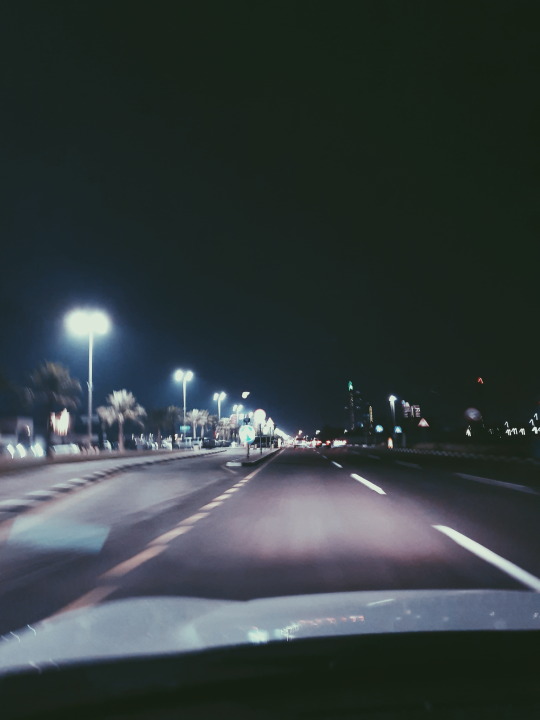
Khobar nights
25 notes
·
View notes
Text
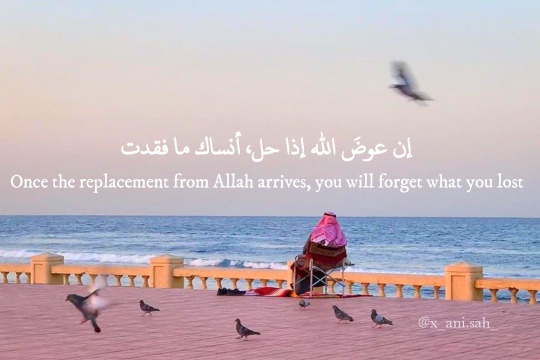
#saudiarabia#dammam#jeddah#alkhobar#riyadh#arabia#arab#sea#seaside#waves#saudi#blue#ocean#Dahran#Dammam#Saudi Arabia
1 note
·
View note
Text
कानपुर का एक ऐसा मंदिर जहां संतान प्राप्ति के रखते हैं धरन
कानपुर का एक ऐसा मंदिर जहां संतान प्राप्ति के रखते हैं धरन
मंदिर की सबसे खास बात यह है कि यहां भक्त दर्शन के लिए आते हैं और संतान प्राप्ति के लिए धरन रखते हैं.वह अपनी मनोकामना मान कर चुनरी बांधते है जब उनकी मनोकानामा पूरी हो जाती है. तो वह उसे खोल देते हैं. यह परंपरा सदियों से चली आ रही है और इस पर लोगो की अटूट विश्वास है.
Source link
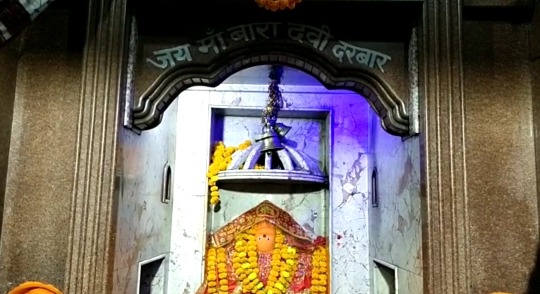
View On WordPress
0 notes
Photo
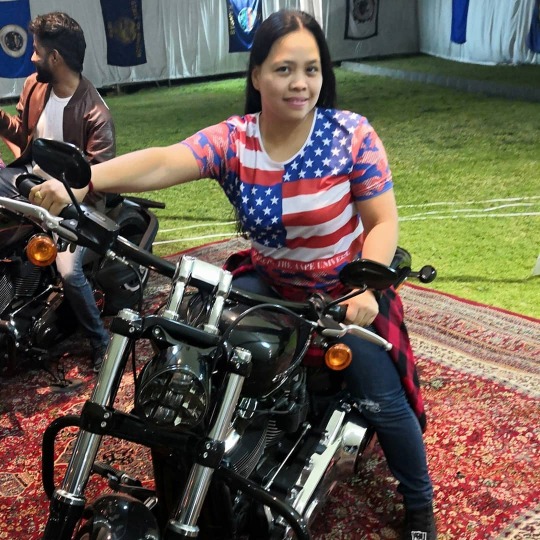
Happy 4th of july. 🇺🇸🇺🇸🇺🇸 #happy4thofjuly #4thofjuly #july4th #independenceday #freedom #aibeelicious #aibeentures #motorbike #bike #bikevibes #biker #bikeshow #dahran (at U.S. Consulate General in Dhahran القنصلية الأمريكية في الظهران) https://www.instagram.com/p/CQ6XG7eBzF4/?utm_medium=tumblr
#happy4thofjuly#4thofjuly#july4th#independenceday#freedom#aibeelicious#aibeentures#motorbike#bike#bikevibes#biker#bikeshow#dahran
0 notes
Text

اسهـل مفـاتيح الـقلـوب ابتسامـه シ
0 notes
Text
March 3rd 2024 - Good morning TUMBLR.
Here I go again with another chapter of my memoirs of my life in These are memories of travel and work experiences around the world, over a period of approximately 40 years.
The title is':
''Mr. Plant has owed me a shoe since July 5, 1971."
Ch. I - DAHRAN - SAUDI ARABIA - 1980 – FEAL SpA
What kind of Saudi Arabia did I find in May 1980?
A very different country from today. Sitting on the throne is King Kaled, who succeeded his half-brother Faysal on March 25, 1975, following the assassination of the latter by a nephew.
The country is preparing to become a major industrial and oil power, and must guard against internal and external enemies. The Al Saud family is seen by numerous enemies as ''usurper and illegitimate'' in power, and therefore must proceed in forced stages to modernize the country through the construction of oil plants, infrastructures and even new cities. All this reaffirming in the eyes of the global Muslim community, his role as ''Custodian of the Holy Places of Mecca and Medina''. The pact between the Al Saud royal family and the Wahhabi clergy seems to be working, and the country is under the strict control of the National Guard loyal to the King.
This enormous effort is taken care of, with the approval of the Sovereign, by Fahd bin ʿAbd al-ʿAzīz Āl Saʿūd, the King's brother and his designated successor, in his capacity as Minister of Defence.
The projects that FEAL, the company I work for, are implementing are part of the new infrastructures that are emerging in the country: a series of military hospitals and clinics equipped with all the most modern technologies that Italy and the USA can offer.
Saudi Arabia in those years was a very safe country for foreigners, the only social problems were limited to the eternal struggles between Sunnis (who govern the country) and Shiites who are the majority of the population in the so-called Eastern provinces.
This is inevitably reflected in the areas around Mecca and Medina, the two most important holy cities of Islam, where every year millions of pilgrims from all over the world converge to carry out the so-called Hajj (pilgrimage), one of the obligatory pillars of the Muslim religion .
These areas are periodically subject to terrorist attacks, and therefore the Saudi authorities maintain a strong contingent of security forces in the Holy Places, to guarantee order and peace.
A ''different'' country, where I saw a man park his pick up in front of a bank, with plastic bags full of money in the back, and he patiently carried 4 or 5 at a time into the bank, each time leaving an unattended ''treasure'' outside - but where no one remotely dreamed of touching something owned by someone else.
I arrive in Riyadh, where a stop over is scheduled, and going out onto the plane's ladder, I notice that due to inertia the jet engine is still spinning, and I say to myself ''Wow, what heat these engines generate…''
After taking a few steps to reach the terminal, I realize that it wasn't the plane's engine that was producing the heat: the air is literally boiling hot!! And it's only May!!
I left for Daharan, just a 45 minute flight away, overlooking what is internationally called the Persian Gulf, but the Saudis and Arabs call El Kalij el Arabi (The Gulf of the Arabs)
The arrival in Dahran is one of the most promising: no one waiting for me!!! And it's not like I spoke fluent English in 1980!
But we know, sometimes using the old ''Help yourself, heaven helps you'' technique, in the end, by pure chance, I found, among the crowd waiting inside the airport, a Somali boy, one of those who, in addition to speaking fluent English and Arabic, spoke some words in Italian also stand out (colonial reminiscences)
The guy tells me that yes, not far from the airport there is a construction site for a hospital, managed by an Italian company – and that he, with his pick up, will take me to there.
We go out into the infernal heat of the evening - it is now 11.00 PM - and in a few minutes we arrive at the entrance to the construction site.
Awakened by a few honks, the guard comes out of a shack and confirms to us that it is indeed the "Italians'" construction site, "my" construction site.
At this point I heartily thank the Somali boy, and enter the shack, where the guard is busy with the telephone (we are in 1980, cell phones were yet to come). He calls the campound where the Italians live, and assures me that they will send someone to get me there. Which happens after half an hour: another Somali drives the wehicle that came to pick me up (I will learn that this ethnic group has very important functions of service and connection between us ''Western Expats'' and the locals/Asians)
Finally, after a short journey, I ''triumphantly'' enter the Company's compound, a small village made up of prefabricated buildings like those of earthquake victims in Italy, which will be my ''home'' in the coming months.
Thus I began to work on the construction site, with mixed success - in the sense that the project very complex, made up of a thousand difficulties - but with a big difference compared to just a few years later.
There were many Italians who work there and of all categories. There were technicians and supervisors, but also carpenters, bricklayers, electricians, plumbers, floor and carpet installers, installers of plasterboard walls and false ceilings, structures and external coverings in travertine marble. Of course there were a lot of Indian and Pakistani manpower, but the presence of many Italians makes things easier, both in terms of mutual understanding and in carrying out the various phases, all in a workmanlike manner. Only a few years later (to cut costs, said the Top Management…) the Italians will disappear as construction personnel, increasingly replaced by Asians, giving rise to significant problems, both of a technical and economic nature.
In the meantime, the company I worked for decided to participate in tenders for new projects, again in Saudi. For this purpose, I was sent on a mission to various parts of the country, to carry out preliminary surveys on the places and lands where the construction of new hospitals were planned.
One day I left by plane for Riyahd, from where, in a car driven by a local driver, I headed to Buraydah, a town in the An Nafud desert (the desert of Lawrence of Arabia). A very monotonous journey, of about 300 km, surrounded by a desert landscape, ''cheered up'' by the exact same music that flowed from the car's stereo cassette, turned over and over again - traditional Saudi music, which always repeats the same : din of drums and tambourines, interspersed with shouts and vocal modulations. After about 2 hours, I ask the driver if we can hear something different, maybe western music – his answer:
''Western music is a sin, it is also sung by women, and leads to bad thoughts - and then you are here, in Saudi Arabia, our guest, and therefore you must listen to our music.
Buraidah is the capital of the Al-Qassim region in north-central Saudi Arabia, in the heart of the Arabian Peninsula. The city is located equidistant from the Red Sea to the west and the Persian Gulf to the east. It has a population of 619,739 inhabitants (2010 census).
Buraydah is located on the edge of Wadi Al-Rummah, and has a typical desert climate, with hot summers, mild winters and low humidity.
In Buraydah, agriculture is still the cornerstone of the economy. Traditional oasis products such as dates, lemon, orange and other fruits are still important. The modern introduction of grain production has been so successful that Buraydah is one of the Kingdom's largest producers, important in making Saudi Arabia a net exporter of grains. Intensive cultivations are carried out in circular fields, to facilitate irrigation with the ''pivot'' system.
At that time, 1980, the city was underdeveloped – so we visited the local hospital, to get an idea of the current standards of hospital care. What I saw was disconcerting: an old and dilapidated structure, the patients crowded into narrow rooms, sometimes without windows - the beds old and dirty, in many rooms the floor was made up of gravel and sand. The hospital housed around 400 patients, I honestly don't know how many of them, after their stay, walked out of that facility. The new hospital would have to be built next to the existing one, given that there was absolutely nothing around it.
We returned to Riyadh the next day, after sleeping in a local hotel, a building of much pretention but no merit (like so many others in Saudi at the time, it was the product of Egyptian and Syrian architects). The hotel had a swimming pool, which was of course empty.
The next day I had a flight to Abha, from which I would then continue to Khamis Mushayt, where FEAL was building the new local hospital. From there, thanks to the logistical support provided by my colleagues, I would continue to Sharoura, a desert location in southern Saudi Arabia, on the border with Yemen.
Abha is the capital of the Asir region in the east of the country, not far from the Red Sea - It is located 2,270 meters above sea level on the slopes of the fertile mountains that divide the desert area of southwestern Saudi Arabia from the Red Sea . Abha's mild climate makes it a popular tourist destination for Saudis.
The air journey from Riyadh was somewhat troubled, as it approached landing the plane began to vibrate and suddenly lose altitude, in frightening gaps in the air - this caused quite a bit of fear among the local passengers, to the point that some of them they undid their seat belts and began to pray to Allah, prostrating themselves in the aisle of the plane. The on-board staff in vain exhorted the passengers to sit back down and fasten their seat belts, little by little the latter were joined by other Saudis. Until suddenly the turbulence stopped and finally the Commander's voice told everyone to sit down, because in a few minutes we would land!!!
Once I left the airport, I immediately realized that the surrounding landscape was very different from the rest of Saudi Arabia. Abha was sitting on a plateau surrounded by rather bizarrely shaped peaks. After about 40 minutes by car, I arrived at the Company's compound, in Khamis Mushait.
The usual prefabricated buildings, here with a minimum of vegetation and a surprise: a couple of baboons live in the field, free to roam around!
One night in the prefab and then off the next day, very early towards Sharourah.
Sharourah is a city in Najran province, southern Saudi Arabia, about 550 km east of Khamis Mushait. It is located in the Rub Al Khali Desert near the Yemeni border and functions primarily as a border town. Sharourah had a population of 85,000 at the time.
A long and very boring journey, with terrifying heat, and with absolutely nothing to see, except an endless expanse of sand and red dunes.
The day after our arrival, we set out to look for the place where the new hospital will one day be built. With the help of a representative of the local municipality, we go out 20 km from the city and then with the GPS we locate the site - meanwhile we ask ourselves why the hospital should be built in the middle of nowhere, but the best was yet to come: after a few minutes, during which we are proceeding with the instrumental survey of the terrain, a Yemeni Arab approaches on the back of his camel. Once off the animal's back, he speaks animatedly with my driver and the municipality representative – after 10 minutes of discussion the meaning of the dispute is translated to me:
Yemeni: What are you doing here?
Us: this is the place chosen for the construction of the new hospital
Yemeni: And why here?
We: we didn't choose it, but the local administration
Yemeni: which local administration?
Us: Sharoura's
Yemeni: why has the Sharoura Administration determined that the new hospital must be built in Yemeni territory?
Us: …….????????
Us: are you sure of what you say?
Yemeni: I'm sure
Us: good, we will do the surveys and then we will go to the municipality of Sharoura to report.
Yemeni: report that no Saudi hospital will be built in Yemeni territory.
Us: Okay, Mashallah
Afterwards, having completed the findings, we returned to Sharourah and went straight to the municipality, to report the strange encounter.
The local leaders were not too surprised by our story. They simply told us that ''by the time the hospital is built, the land will certainly be in Saudi territory''.
TRANSFER TO TABUK
I returned to Dahran but didn't stay there long time – Mr. Spazzini, Area Manager for the Middle East for the Feal Group, had arrived to visit the construction site. An ''old-fashioned, self-made'' type of man. Tall, big, his glass eye as a result of a car accident gave him a sinister appearance which ultimately did not reflect his character at all. He was the classic gruff-good guy, Juventus fan. Once on site, the carpentry assembly supervisor, following a complaint from Spazzini regarding the verticality of the structure of the emergency stairs, blurted out ''oh well' Mr. Spazzini…turn off a blind eye.'' Spazzini got really angry and condemned him to go for a week in his office to clean a giant Juventus poster.
As soon as Spazzini saw me he said:
Bruuunoooo……pack up your suitcase…….Where should I go Mr. Spazzini?You'll come with me to Tabouk, we need to give help overthere.
So it was that I left with him for Tabouk (in Arabic = brick) a city in north-western Saudi Arabia. To the east of An Nafud, near the border between Jordan and Saudi Arabia, Tabuk is home to a large Saudi air force base. The hospital that was being built was at the service of the soldiers stationed on the base. In fact the construction site was much less organized than that of Daharan, with an Italian - Mr. Riva - as Site manager, who cared more about his affairs than the works. One day he disappeared without telling anyone, and returned a week later with a brand new Alfa 164: ''I bought it in Jeddah - he said - it costs very little compared to Italy'' We proceeded blindly, with personal initiatives , without following a real work schedule. Mr. Riva and I went once to visit a Korean construction site, and we had noticed outside the hangar that served as offices that the scooters used by the staff were parked in a ''herringbone'' pattern in an incredibly perfect alignment. Inside, the office was organized like a large classroom in a school: the boss sat on a raised desk. The clerks were spread across 12 rows of desks, and none of them raised their heads when we entered. An absurd silence reigned in the hangar. A few words with the office manager, and we made arrangements for him to come to our camp to inspect our cranes he said he was interested in. After the inspection, the business was quickly concluded, and payement settled in cash, as it was normal those days in Saudi.
CEMENT SHORTAGE
One day we suddenly realized ''that the cement had run out''! The construction accountant called me into the office and gave me 75,000 Saudi Rials ($20,000 in local currency) and sent me to get the cement. As I saaid, those were the times when almost all trades in Saudi were settled in cash. Accompanied by Hamed, a Jordan's driver, with a trailer in tow, we went to a building materials dealer. After a brief negotiation on the quantity and relative price, the usual Pakistanis immediately began to load the trailer with bags of cement. Meanwhile, the old Saudi was counting the money - and once the counting was finished, he put aside a packet of banknotes and putting them in my hand he said to me:
Barak Allah Feekum!
I didn't understand, or rather: I understood that he hoped Allah would bless me, but I didn't understand the connection with the money. Then Hamed explained to me: ''he thanks you for choosing him to purchase the cement, and the ''bakshish'' he gave to you is with the hope that you will return to him again''.
Ahh…good…understood!! So I thanked the man and assured him that I would not betray him to any other dealer. Then I shared the bakshish with Hamed, who was surprised that a Westerner was sharing the money with him.
EL HAQL - RED SEA
One Friday - to break the monotony - we decided to go to El Haql, a town on the Gulf of Aqaba, Red Sea, about 270 km from Tabouk. There were three of us: in addition to myself, a young architect from Genoa, and another guy from Castiglione delle Stiviere, Italy. A decision devoid of any logic, to be honest, given the distance, the state of the roads, and the absolute lack of any assistance in the event of a breakdown of the car - an old Toyota Corolla. In hindsight, it was a stupid risk we took – in these cases, we should travel with at least two cars. Be that as it may, all went almost well. After leaving very early, we arrived in El Haql (in Arabic = the field) a small town with a beautiful uncontaminated sea coral reef populated by incredible flora and fauna. The coasts of the Red Sea and the Gulf of Aqaba in this region are steep and overlooking the sea. At that time, Sinai was occupied by Israeli troops and the warships could be easily seen, as the Gulf of Aqaba here is about as wide as lake. The city presented nothing of interest, and was just a place to get something to eat and drink. Just outside the town, beaches abound, and it was shocking to dive into the Red Sea due to the quantity of fish of every shape and colour. The water was absolutely transparent, and it was a memorable day.
The distance from Tabouk suggested we leave El Haql early. The Genoese architect was driving, a dry and lanky boy, not very inclined to advice (of any kind). This is how we arrived nearby a village and like everywhere in Saudi Arabia, before and after the town there were the usual huge humps, to slow down the speed of the vehicles. The stretch was slightly downhill, I saw them first, painted in reflective yellow, and I said softly to the architect: ''Slow down, there are humps'' - to which he, who was also a bit of a stutterer, said turning his head towards me: Wha...wwhaattt?
By that time we were on top of the humps, and we hit the first one at full speed, but the architect had his own theory, and that is when you hit one of the humps, to avoid the second and third you have to accelerate… it was like that we ended up on the third with the front axle of the Toyota, a terrible crash!! I hit my head on the ceiling of the car, and suddenly very hot air hit us full on: the windshield had disappeared!! We heard it two seconds later crashing behind us! The blow had actually detached it entirely from its frame and made it fly backwards!! Finally the guy stopped the Toyota at the side of the road – we retraced our steps only to find that the windshield was useless, smashed into 1000 pieces, and we removed it from the road.Are you happy IDIOT!???!! With your fucking theories!!! - I shouted.But I…I thought…Let's go… the road is still long… In fact they were still missing more than 200 km to Tabouk, and we traveled them as if we were on a motorbike, with towels wrapped around our face like Tuareg turbans in a desperate attempt to avoid the boiling air that was entering the car. We arrived at the camp distraught, to endure the teasing of our colleagues when they saw us, with our faces distorted and covered up as if we were veterans of the Paris - Dakar.
TRANSFER TO TAIF
After our arrival in Tabouk - there were 5 of us from Dahran - the construction site had changed a lot, and for the better. But Mr. Spazzini had another surprise in store for me: he came just before Christmas and as soon as he saw me he said:
Brunooooo……pack your suitcase…….we need to go! Where to this time Mr. Spazzini? Company had taken over from Genghini (the famous Roman building developer, expelled from Saudi Arabia with ignominy after the towers under construction in Jeddah sank into the sand, but this is another story that should be told) and FEAL was called to taken up the work for the expansion of the Taif general hospital.Well - I said - when are we leaving?Tomorrow early morning!
This was Spazzini, a man who never stopped working, EVER.
We then left for Taif, the summer capital of Saudi Arabia – located in the mountains of the Asir region, 200 km north-east of Jeddah, about 1,800 meters above sea level. The city enjoys an excellent climate, and is an agricultural center of some importance and for almost centuries the vine and grapes called zibibbo (from the Arabic zabīb, meaning "dried grapes") have been cultivated there as well as roses and flowers in general .
TAIF
There were a few days left before Christmas, the construction site had not yet started and we were only 5 people - so we temporarily settled in a rented house in Al Hada, the area further upstream from Taif, surrounded by acacia trees and the compounds of the Royal family members. There was the enormous villa entirely covered in white Carrara marble of the then Crown Prince Fahd, Minister of Defense and ultimately ''Head of our Client'', given that we worked for the same Ministry. And then further away the compound of a very influential family, which will be talked about a lot in the years to come: the Bin Laden family.
On the other side of the valley, leaning against the mountain, stood the military hospital, surrounded by the villas of the mostly American healthcare personnel. The hospital was already very large, it could have had around 400 beds, but its expansion envisaged bringing the capacity to 1000 beds, with an entire wing dedicated to the rehabilitation of patients with serious pathologies.
Our Company organized a charter flight for the Christmas return to Italy of the staff from the various construction sites. So we all met in Dahran – about 220 people – and flew first to Rome and then to various destinations in Italy. With us was a strange guy from Viterbo, a certain Piselli, who had grown a Saudi fundamentalist beard, an unkempt beard but no moustache. During the flight I went to the bathroom, and came back dressed in the traditional jallabah, saying that he wanted to prank his wife at the airport. Upon arrival at Rome's Fiumicino we went through passport control with some difficulty - then we left the baggage area and a lady with a little girl of about 3 years old came towards us, trying to identify her husband. She recognized Piselli despite the disguise, and urged the little girl to "go and hug that idiot of your father." But the little girl, frightened by the appearance of that bearded man dressed in white who was trying to hug her, burst into desperate tears, taking refuge in the arms of her mother.
From the series: ''how to ruin a return to Italy after the family hasn't seen you for 4 months''.

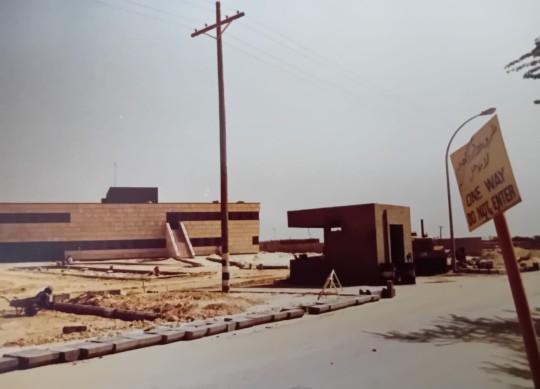
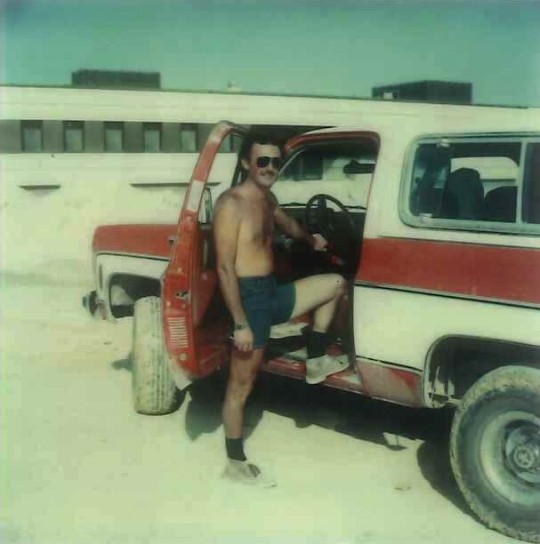
Dahran - Saudi Arabia - June 1980
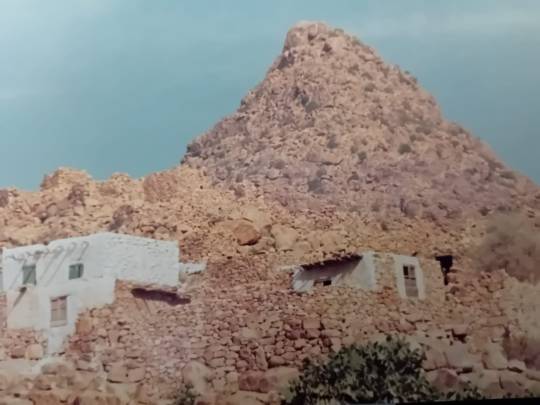

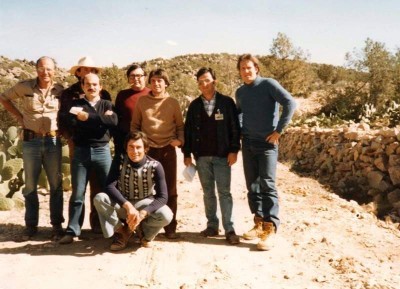
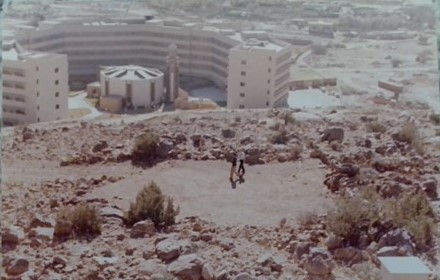
Taif - Saudi Arabia - Jan 1981
5 notes
·
View notes
Text
Masterpost
Hi y’all!! I’m Julie (French, mid-thirties, bi). I’m not new to writeblr, but I like only post sparingly my own content now. Life’s been too busy.
I write high fantasy, but when it comes to reading I also enjoy SF and history (essays, not novels). I’ll follow from @julie-oc, and I have a secondary blog @fukusigma where I reblog a bit of everything. Feel free to tag me in games (except for “Search the Word”, this is too difficult because I write in French).
Click to learn more about my wips. Some titles and summary may have changed since I first posted about them.

These stories take place in the same universe, but in different times and places. They're in chronological order of events.
Here, walked Marka | wip intro post | Status: unstrung scenes
Niensheria has been turned into a desert by the reckless acts of Marka and her friends. The gods, angered, force their gift her eternal yout upon her. Until she finds a way to repair the harm she caused, she will witness the fall of her people. Years pass, new generations are born, and the people of Niensheria, stuck between the desert and their unwelcoming neighbours, reduced to extreme poverty, decide to rise one last time to rebuild their lost home.
The Coriant Trilogy | wip intro post | Status: Plotting
The rise, the summit and the fall of the Coriant Empire through the stories of Hermione the warrior queen who founded the empire, then Erinye queen and protector of the arts, and finally Andromeda the last general who was defeated by the powerful queen Iseult of Aqualos.
The Living Library | wip intro post | Status: unstrung scenes
Zhou has faithfully served the Emperor in his quest for the Living Library, but after one too many massacre, he decides to retire from the political affair. For a few years, he lives peacefully as the only healer in a remote village, until people come ask for payback.
The Dragons of Jamaedo | wip intro post | Status: 1st Draft
The Choo royal family reigns over the archipelago of Jamaedo with an iron hand using magic, it reserves for itself, to snuff out all revolts.
Goo Mihee, eldest daughter of her clan, must marry a man she has no love for: Choo’s Dog, Kwon Taeyeon. But, as she tries to keep the appearance of a dutiful wife, the events around her only fuels her anger, until she seizes the chance to maybe end Choo's hegemony once and for all.
The pirates of Hokusho | wip intro post | Status: Researching
Takeru has risen to the top of his pirate band. But profits are drying up as the warriors from the main islands fight for power, and other pirates try to safegard their place before they're forced to disappear. Against his will, Takeru must serve a cunning samurai or see his band die. Meanwhile, Oharu is sent to kill Take's new master.
The Fall of Baschenka | wip intro post | Status: Plotting
Rinka Zima has spent most of his youth in the mines. No longer hoping for another life, he obtains the king's pardon of his father's crime and is reestablished in his titles, but not in his fortune. Struggling to maintain his family afloat and looking for his sister, he rises at Court while his city, under political turmoil, is conquered by the neighboring Valiski.
The Union of Dahran Cities | wip intro post | Status: Plotting
Forty years passed since the fall of Baschenka. The northern city-states have stallen their infights as Southern-Darah army threatens to conquer them all. In Tara, Gleb Polzin and Fenna are the two newest representants of their respective cities and must find the words to unite them all, under the eyes of a disillusioned Rinka.
The Last War | wip intro post | Status: 1st Draft - Paused
Trélyse, queen of Aqualos, is fighting what she hopes to be the last war against Niensheria. The siege on Alhamra is set and she expects a swift reddition, but, on the northern frontier of Aqualos, alarm fires lit up. Suddenly Trélyse is stuck in a foreign country, cut from her own. Little does she knows, the attack against Aqualos is just a diversion. The Memory Tower, library of sorcerers’ knowledge from the past millennium has been burned to the ground. But one book was retrieved from its shelves. With the secrets revealed within, Ketal could rise again and rebuild his empire of terror.
Shadows and Woods | wip intro post | Status: Plotting
In the capital, Niau, young police inspector who can't meet the approbation of his superiors, must solve the disappearance of a judge's son. But as he digs deeper, he only find unidentified dead corpses, until he must questions his loyalties.
Phā is sent to the capital by the prophet of his mountain village. His best friend has mysteriously disappeared, no magic can find her anymore. Only him can track her back, but her last steps only lead to Niau.
A Train in Roue-Champêtre | wip intro post | Status: Plotting
Ludélien has fallen in disgrace with the queen. No longer welcome at court, he joins some friends in Roue-Champêtre. They're working to extend the train line into the town center, but between the unexplainable crumbling of the tunnel and the angry protests of the porters on foot, their task may never come to an end.

Le Randonneur | wip intro post | Status: On hold
Ensemble of stories in various format about a world where an ice age result in the rarefaction of water and the soon impossibility to trade long distance. Two siblings, a brother and a sister, create the first flying ships which will give rise to all powerful Guild Post.
Contes à l’envers | wip intro post | Status: On hold
As a kid, Manon cross to a magical world. There, she learns magic and helps the people of that world reclaim their independance from a powerful witch who destroyed all other witches and wizards. Once this is achieved, Manon is sent back to her world, as a kid again. But she kept all her memories and, while her parents are convinced she suffers of some mental illnesses, she starts a quest to find a way back convinced she cannot be happy anywhere else.
#writeblr#writeblr intro#re-intro#some details in wips descriptions may change#in the future#especially some characters names#and plot of wips still in the middle of this process#sorry for the long post#you can also check some of#my writing tips#they're mostly about worldbuilding
8 notes
·
View notes
Photo
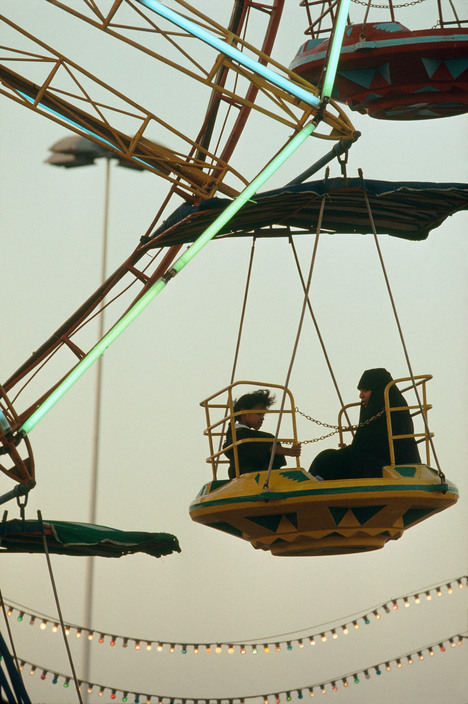
SAUDI ARABIA. 1990. Dahran. A. Abbas
5K notes
·
View notes